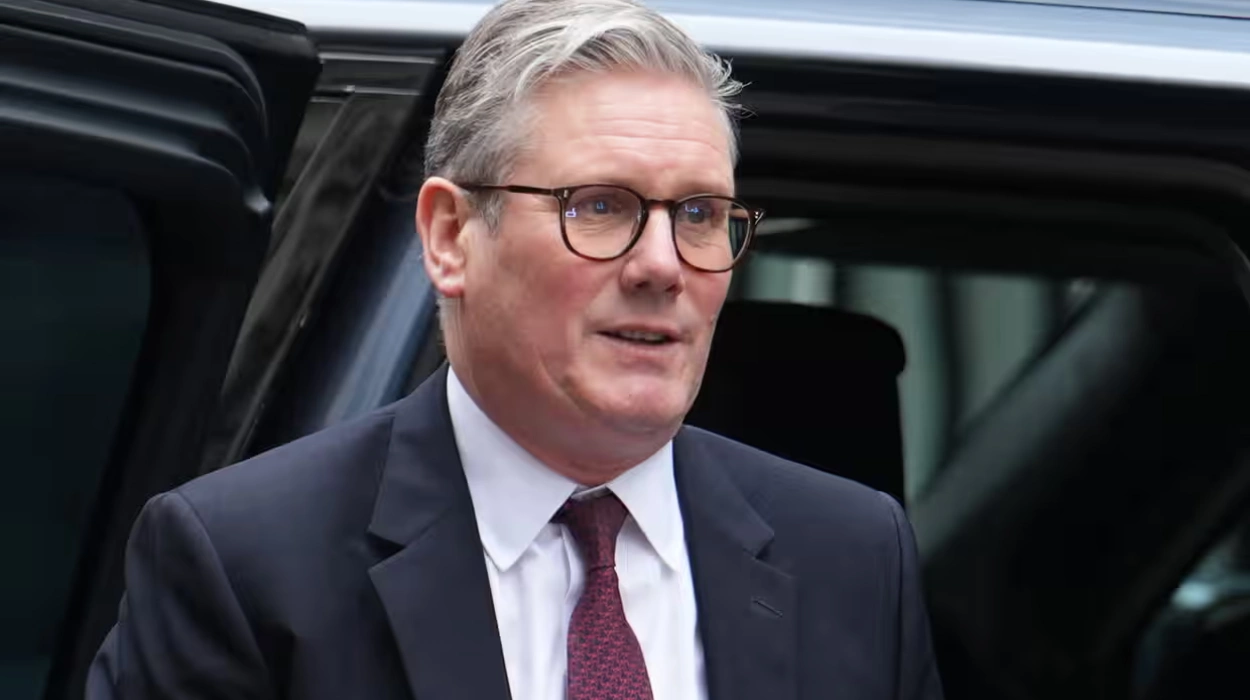UK (Parliament Politics Magazine) – Keir Starmer pledges to close the loophole allowing a Palestinian family to settle under the Ukraine Family Scheme, stressing Parliament should set the rules.
During PMQs, the Prime Minister said efforts are underway by the government to close a gap in immigration policy that allowed a Gaza family to secure UK residency through this program.
How did Keir Starmer reply to Kemi Badenoch’s question on immigration policy during PMQs?
The Tories leader started her questioning by highlighting the Ukrainian Family Scheme, a program introduced by the former government that has allowed over 200,000 Ukrainians to seek refuge in Britain after Russia’s attack.
She pointed out that a family of six from Gaza was allowed refuge under the scheme after a court decision, remarking, “This is not what the scheme is designed to do,” adding, “This decision is completely wrong. It cannot be allowed to stand.”
She asked a question from Sir Keir, “Is the government planning to appeal on any points of law, and if so, which ones?”
The prime minister responded, “I do not agree with the decision. She’s right – it’s the wrong decision.”
Responding to the Tory leader, Mr Keir stated she ‘hasn’t quite done her homework,” clarifying, “The decision was made under the last government, following its legal framework.”
He said immigration regulations should be determined by Parliament, while the government is responsible for policy, and the Home Secretary is already working to tackle the loophole.
Ms Badenoch replied that the PM “did not answer the question” and demanded clarification on whether a new proposed bill will be introduced or changes will be made to the current borders bill.
He argued that the Conservatives “lost control of immigration” and criticized their stance against enhanced measures to tackle the people-smuggling trade.
Why did Keir Starmer accuse Tories of an “experiment in open borders?
Tory leader questioned Sir Keir if he plans to treat gaining a British passport as a privilege rather than a right.
In response, the Prime Minister remarked that the Tories saw “record high levels of immigration,” describing it as a “one-nation experiment in open borders,” and suggested, “Before she lectures, she must reflect on her own record.”
Ms Badenoch argued that the Prime Minister should write a book on the European Convention on Human Rights. She argued that there is an urgent need to tackle the “conveyor belt” system, where individuals arriving in Britain can gain citizenship and bring their families with them.
What did Kemi Badenoch say about Keir Starmer’s chief legal adviser?
Ms Badenoch raised concerns about whether the prime minister is allowing legal experts to alter the government’s stance on supporting Israel.
In reply, Keir Starmer stated,
“She has no idea what she’s talking about.”
Conservative leader expressed worries over the PM’s Attorney General, stating there are “serious questions” regarding their actions and called for appointments of those who align with national principles.
Attorney General Lord Hermer KC is serving as the chief legal adviser to Keir Starmer.
What did Ed Davey urge Keir Starmer during PMQs?
Ed Davey, Liberal Democrats leader, during PMQs, urged Keir Starmer to “prepare a plan for tariffs in return, starting with tariffs on American electric cars.”
In response to calls for tariffs, the PM stated that British steel plays an integral part in the country’s heartlands and promised the workforce will not be left behind. Keir Starmer said the government is carefully reviewing the tariffs’ impact but will always prioritize national interest.
How many Ukrainians have come to Britain recently?
The Migration Observatory estimates that around 217,000 Ukrainians were living in the UK as of 30 June 2024. This figure is based on two data sources: the number of Ukrainians living in Britain and those who arrived via dedicated visa routes after the war with Russia began.
The Office for National Statistics reported that between June 2023 and 2024, net migration to Britain reached 728,000, reflecting the difference between those entering and leaving.


